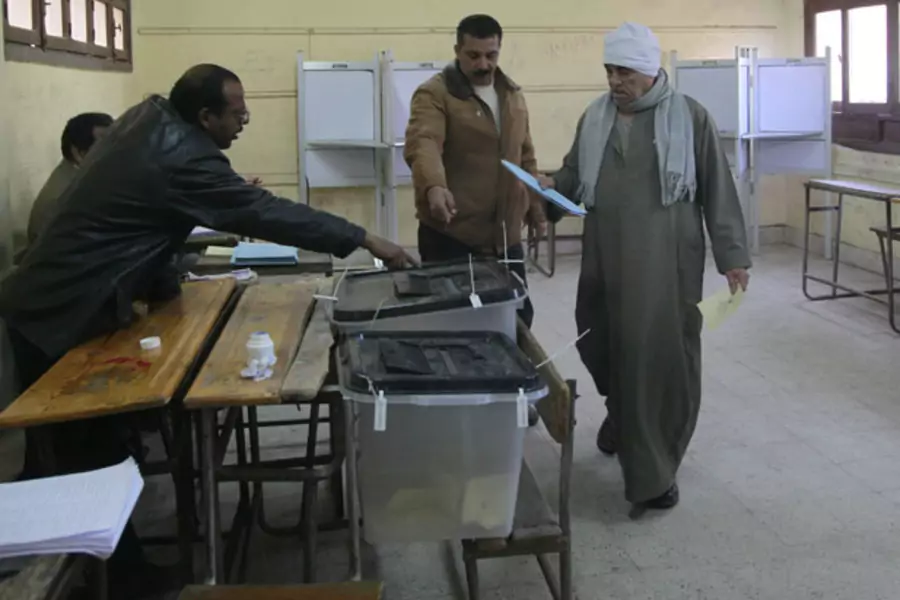More on:
There has been a lot on twitter and elsewhere in the social media world about the awful soccer riot in Port Said on February 1st and the subsequent violence in Cairo. The best analysis that I have seen thus far is James M. Dorsey’s piece in Foreign Policy, “Ultra Violence” which can be read here.
Egyptians went to the polls (again) beginning on Sunday to begin electing a new Shura or Consultative Council, the upper house of the Egyptian parliament. Reports indicate that turnout is in the neighborhood of10 percent, significantly lower than it was for the People’s Assembly elections, which ended in early January. If Egyptians are unenthusiastic it is likely because they are “polled-out” from Egypt’s extended election season, but there is also another reason for the low turnout. No one in Egypt knows why the country needs the Shura Council. In the abstract, upper houses of parliament are a check on the potential for excess that exists in lower chambers that are designed in ways that more directly represent the interests of the masses. That is why the U.S. Senate is often referred to—only by Americans—as the “world’s most deliberative body.” The Founders wanted to make sure that rabble rousing in the House of Representatives did not undermine American democracy.
If the Shura Council had been founded with similarly noble intentions, it would seem like a worthwhile enterprise. Yet Egypt’s upper house was a creature of Anwar Sadat’s political machinations gone awry. Sadat’s most far-reaching reform was the establishment of manabir, or platforms, within the Arab Socialist Union in 1976. At Sadat’s direction, these platforms ultimately became political parties of the right, left, and center. Sadat’s move was considerably less revolutionary than his supporters suggested at the time or have since. Although it is true that Sadat ushered in an era of multiple parties after more than 20 years of a severely circumscribed political arena, the president envisioned the Socialist Liberals, Arab Socialists, and National Progressive Union serving as loyal oppositions. But Sadat miscalculated badly. After the first elections in 1976, the parties, though not the Arab Socialists—which would morph into the National Democratic Party in 1978—ended up being more “opposition” than “loyal” and took the government to task on a variety of issues of national import, especially foreign policy. In practice, this did not matter given the large majority Sadat’s own Arab Socialists held, but the criticism was embarrassing to Sadat.
Unwilling to crack down on his own creations, the president sought to keep the parties in line through a combination of restrictive legislation and ultimately some nifty constitutional reengineering. In 1980, under increasing political pressure from a People’s Assembly that was in open revolt over his trip to Jerusalem, the peace treaty with Israel, and the increasing brutality of the state, Sadat pushed through constitutional amendments that—among other things, identified Islamic law as “the” basis of Egyptian legislation—established the Shura Council. This new upper house of parliament was set up in a way that would ensure the ruling National Democratic Party’s control and would thus give government policy an imprimatur of legislative legitimacy even though it was nothing more than a sham--Part of that elaborate façade of democratic institutions that Egyptian leaders cultivated over many years. When the Committee of 100 finally sits down to write Egypt’s new constitution, it should either empower the Shura Council or just abolish it outright.
More on:
 Online Store
Online Store
